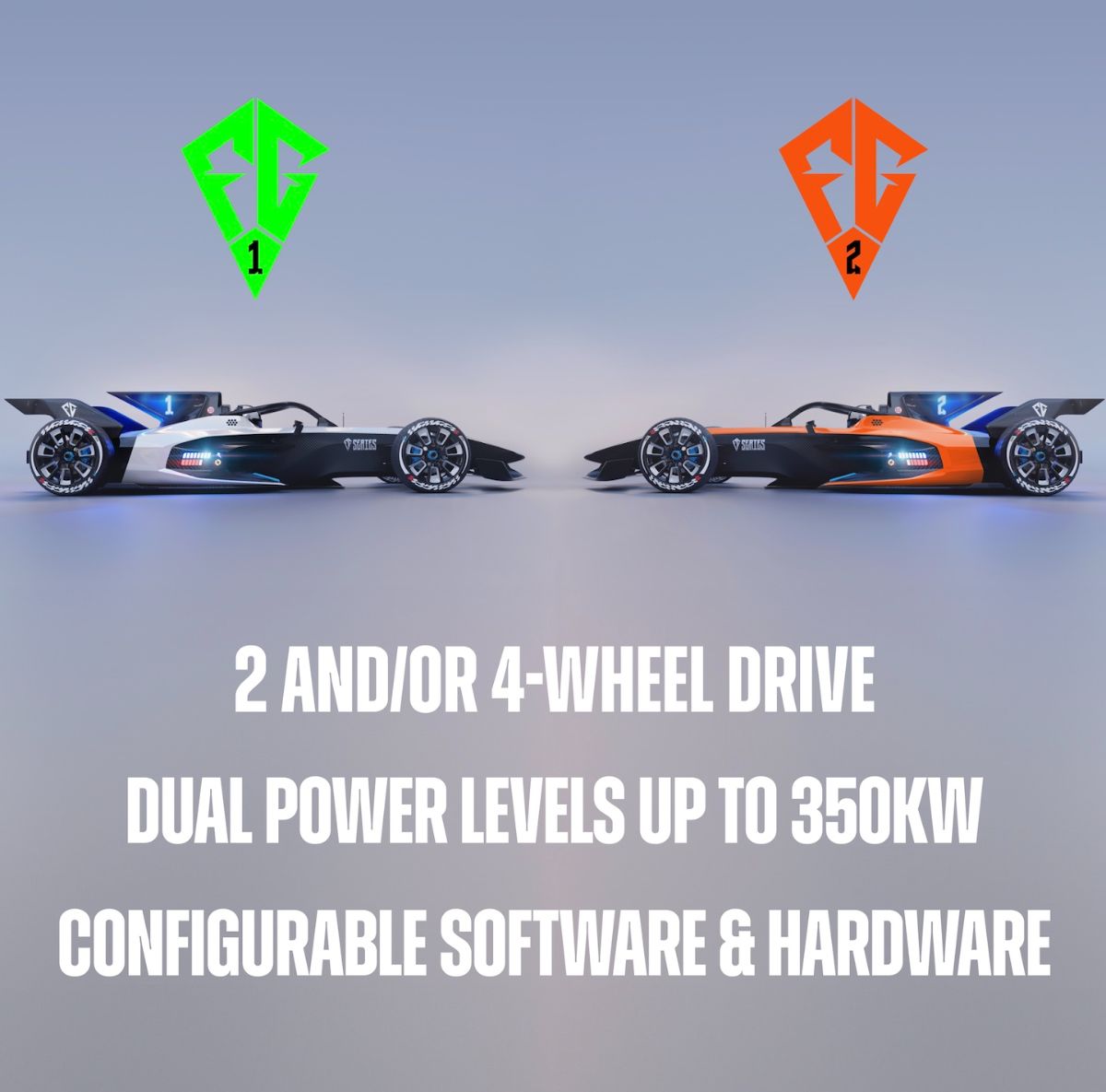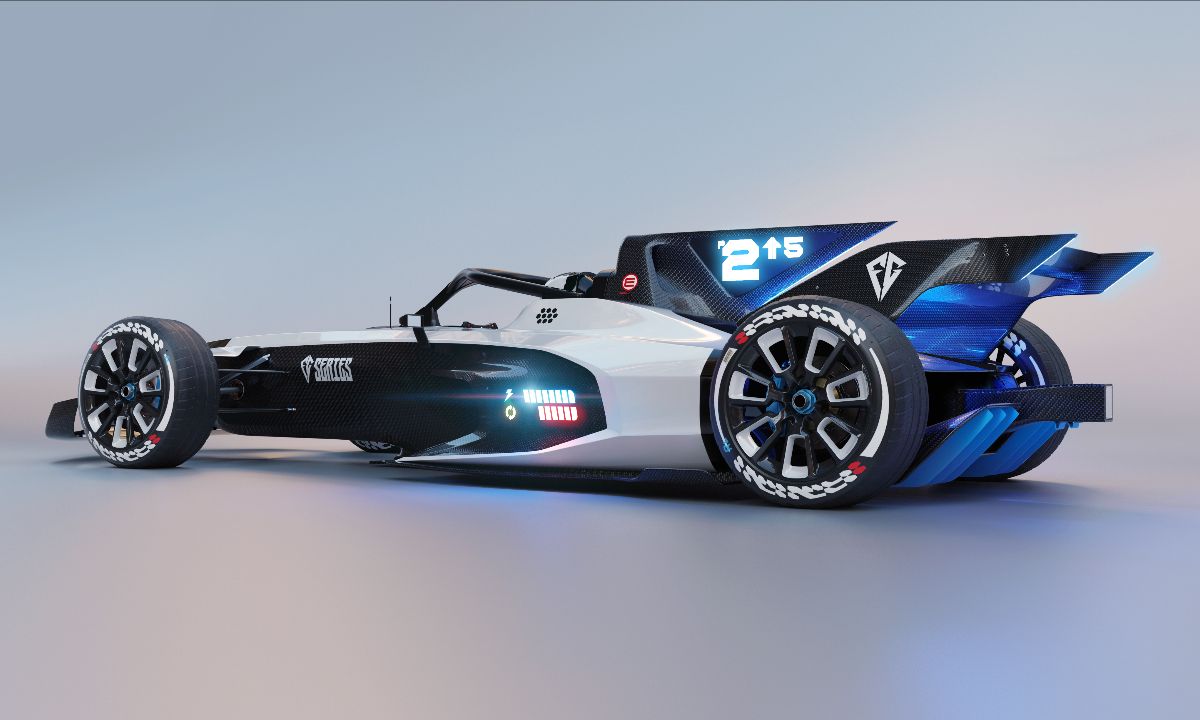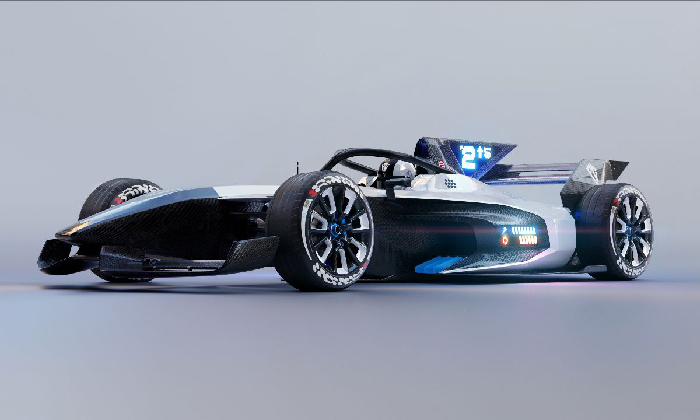The exciting all-electric championship, FG Series, has today revealed the design of the dual-power single-seater race car ahead of its inaugural season in 2025.
Daniel Simon, a world-renowned automotive designer and futurist who is best known for his vehicle designs in Tron Legacy, Oblivion and Top Gun Maverick, worked closely with the Founders of FG Series Dilbagh Gill and Nick Heidfeld to ensure the car will be a torchbearer for championing electric and accessible motorsport, two key elements in the FG Series ethos.
Breaking the mould of previous single-seater categories, the FG-Twin is a modular race car, offering an all-electric powertrain with both rear-wheel and four-wheel drive. The pioneering model has the ability to run the front and rear axle at 350kW of peak power and offers two different performance levels for the FG1 and FG2 championships. Alongside the different power levels, the purpose designed easy change system allows for quick adjustments to the hardware, creating a seamless transition and tailored racing experiences for drivers competing in the two FG Series Championship levels.

FG2 is the entry-level for the series, operating the FG-Twin car on the lower power setting and is geared towards training drivers on their path to professional racing. FG1 will perform the FG-Twin cars’ greater power level, making it the pinnacle of the FG Series racing ladder. Devised for more experienced professional drivers, FG1 provides higher performance capabilities, increased downforce and greater freedom for setting up the car.
Thanks to its groundbreaking design, the FG-Twin race car will be used by multiple drivers over the same race weekend. This pioneering feature will help drive affordability for teams and drivers. Lowering one of motorsports’ biggest entry barriers – cost of participation – is a core part of FG Series’ mission. The global coverage through regional championships, the strategic positioning as a support series to other major motorsport events and its unique sporting formats, FG Series is set to become the pathway for the next generation of motorsport talent aiming to compete on the right racetracks and in front of the right audiences.
FG Series’ sustainable edge also sets it apart from other series. Using the same car for both championships is a unique way to reduce the series’ carbon footprint through both energy demands and impact of transportation.
The dual-power configuration is not the only groundbreaking feature, the FG-Twin car also incorporates other cutting-edge technological advancements that will improve the overall spectator experience. The car features digital screens for live ‘infotainment’ that will deliver dynamic vital stats to the audience such as battery levels race position and other performance information.

Nick Heidfeld, FG Series Co-Founder and Chief Sporting Officer, was thrilled with the outcome of the design, stating: “Today is a big day for FG Series as we unveil the outstanding design of the FG-Twin. It’s our centrepiece to introduce FG Series and its disruptive solutions. Defining the styling targets was a collaborative team effort but surpassing them while meeting the latest safety requirements and technical specifications was only possible due to Daniel Simon’s exceptional skills. Collaborating with Daniel Simon has been a dream come true for me. Our goal with FG Series is to enable talents from all over the world to pursue their motorsport ambitions and we hope this is just the first of many dreams to be fulfilled.”
Daniel Simon, designer of the innovative FG Series race car FG-Twin who is very proud of the final result, added: “FG Series presented me with an intriguing proposition: to design an advanced open-wheel monoposto that meets performance and regulation goals and adds modern automotive styling. As a car designer passionate about motorsports, my task was to make it poster-worthy from every angle. The result is a machine with an iconic, rocket-inspired shape, automotive crease lines, balanced proportions, a dynamic stance, and sci-fi lighting details. Such attention to aesthetics is rare for racing cars, and I hope this excites racers and spectators of all generations alike.”

COMMENTS